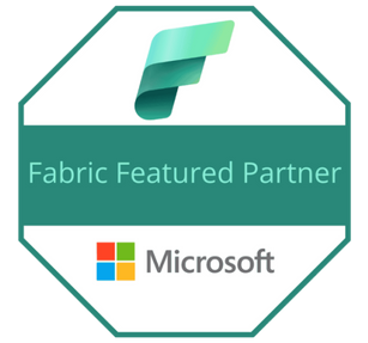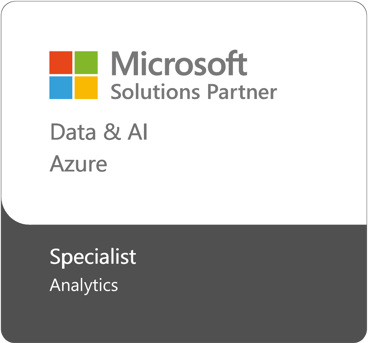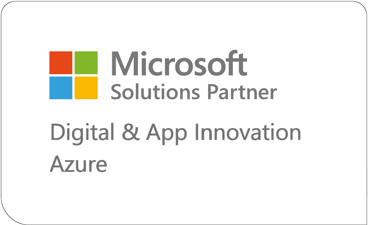"AI in Action" Event Sets a New Benchmark for Responsible AI Use in New Zealand
AI in Action event sets a new benchmark in NZ: experts showed how solid data and smart governance turn AI from proof‑of‑concepts into trusted, scalable results.
It was a sell-out crowd for Enlighten Designs and Deloitte’s AI Breakfast Briefing: “AI in Action Event: From Governance to Real-World Implementation” — an indication that AI is no longer a boardroom curiosity in New Zealand but a strategic mandate.

Why This Event Mattered
The meeting brought together AI experts and business leaders at various stages of their AI journey - ranging from curious newcomers to hands-on practitioners, they were connected with a single shared question: How do we capture the upside of AI while managing the risks?
The answer came early. As Enlighten Designs' Drishti Ratna puts it, "AI isn't a filler that replaces people; it's a multiplier that supercharges workflows, cuts time on repetitive tasks, and lets staff focus on higher-value work." That framing anchored the conversation in execution: where to start, how to govern, and how to build trust moving AI from proof-of-concept to production.
Event Highlights
Verne Roberts: Your AI Is Only as Good as Your Data
Verne Roberts, Principal of Data & AI at Enlighten Designs, opened with the reality check most organisations need to hear: if your data isn't ready, your AI isn't either.
He didn't sugarcoat it. Messy data, inconsistent architecture, and loose access controls don't just slow projects. Instead, they become a business risk when models hit production. Without a solid data foundation, even the smartest models stumble.
Verne's talk resonated especially with leaders still working through their data maturity journeys. He offered clear, practical steps for building long-term data agility and confidence. Steps that directly determine AI model performance.
Key takeaway: Every successful AI initiative starts with a strong data strategy and governance first. Get your data foundation right, and model performance improves while your exposure to error, drift, and leakage falls.
Deloitte: AI Governance as a Growth Engine
Next up was Deloitte with a deep dive into AI policy, governance, and risk management, presented by Reenesh Bhana (Partner, Risk & Regulatory Practice) and Mariette van Niekerk (AI Lead). They outlined what effective AI governance looks like in practice:
-
Define acceptable use upfront: Set clear rules for privacy, IP protection, confidentiality, and third-party data handling.
-
Embed assurance early: Shift left on security, bias monitoring, and data provenance so controls aren’t bolted on later.
-
Build accountability: Use model performance dashboards, audit trails, and escalation paths that tie into existing risk frameworks.
-
Make it repeatable: Create lightweight operating models for prioritisation, risk reviews, change management, and continuous improvement.
-
Find the balance: Too much experimentation without governance leads to stalled initiatives; too much policy without delivery lets competitors move faster.
It’s not about slowing down. It’s about moving fast without breaking trust. If you can’t answer “Who approves? Who escalates? Where does AI risk sit in our enterprise risk framework?” you’re not ready to scale.
Key takeaway: Align AI to business outcomes, operationalize data governance, define accountability, and keep humans in the loop. Governance isn’t a barrier. It’s the enabler that ensures AI delivers value without unnecessary risk.
Damon Kelly: Making AI Real - A Recruitment Case Study
To close out the morning, Damon Kelly, CEO of Enlighten Designs, presented a case study that showcased successful AI works in the real world.
He shared how Enlighten transformed its recruitment process. What once required 290 hours of manual work now takes just 16 hours. This wasn't about replacing recruiters; it was about freeing them from repetitive, time-consuming tasks so they could focus on what matters most: finding candidates with the right experience and cultural fit.
The case also highlighted fairness. AI eliminated the inherent bias of first impressions and focused purely on experience and expertise, making the process more objective and equitable.
Key takeaway: When designed with planning and forethought, AI doesn't replace human judgment—it amplifies it. It gives people time to focus where their insight has the most impact. Explore how AI can transform your workflows.
Your Next Steps: Build Your AI Foundation Now
The takeaway for executives is straightforward and actionable: it's time to bring AI into your business strategically—if you haven't already.
Here's how to start:
-
Conduct a data readiness assessment to understand where your foundations stand
-
Codify your generative AI policy and assurance checks so governance is embedded, not bolted on
-
Select two high-impact, well-governed use cases to productise in the next quarter
Enlighten Designs and Deloitte can help you translate AI governance and data strategy into shipped, scalable AI capabilities.




